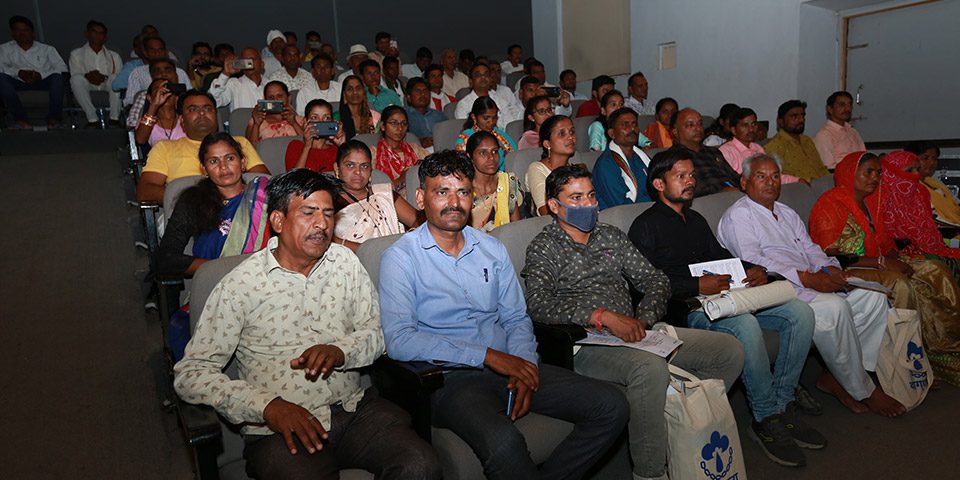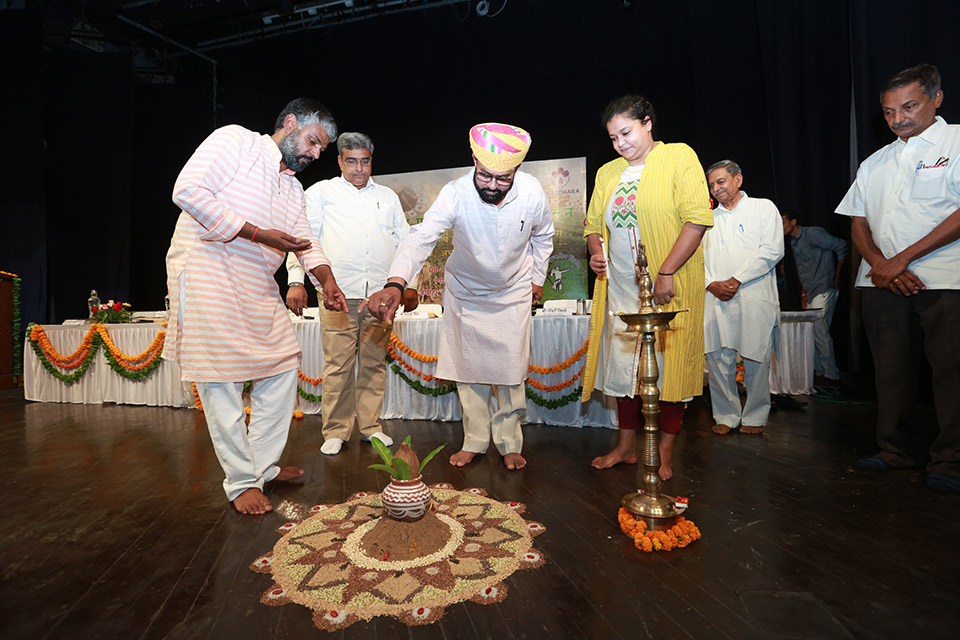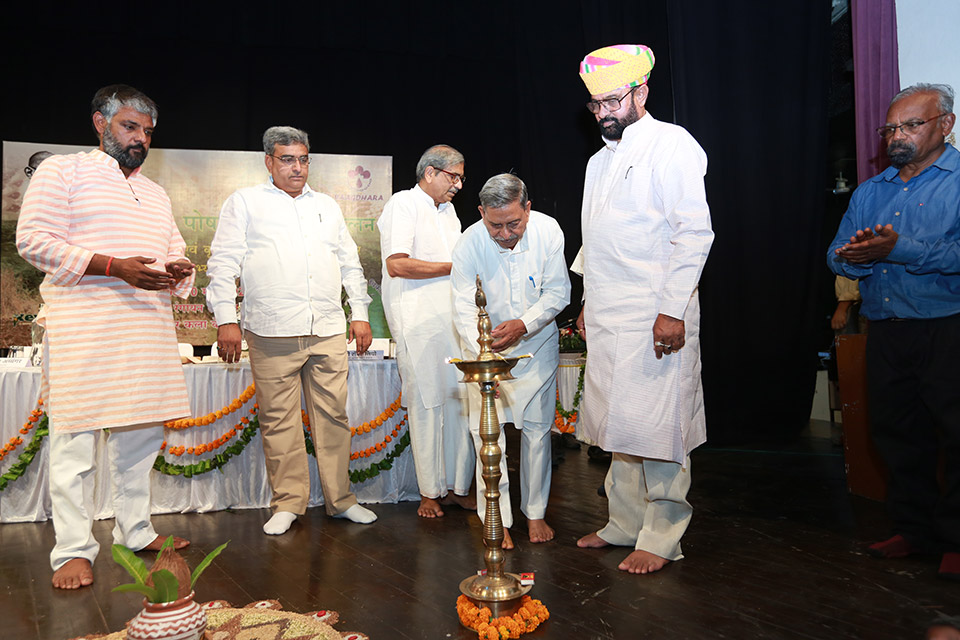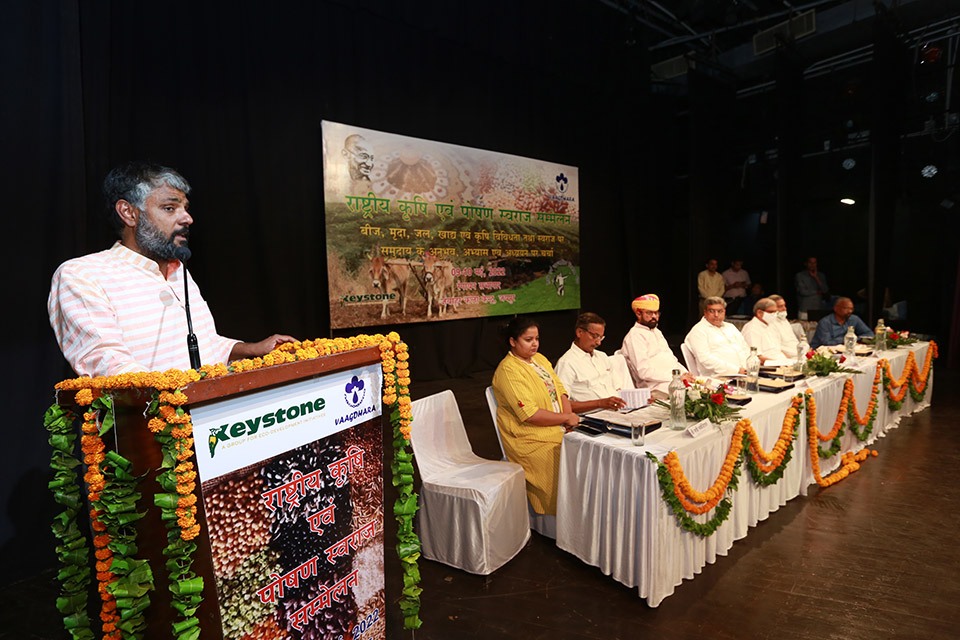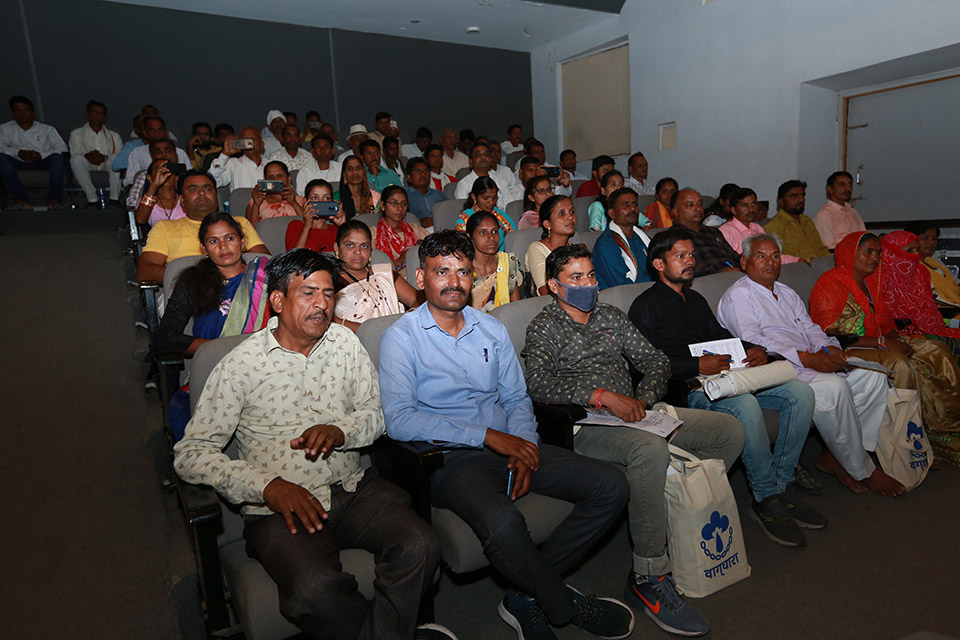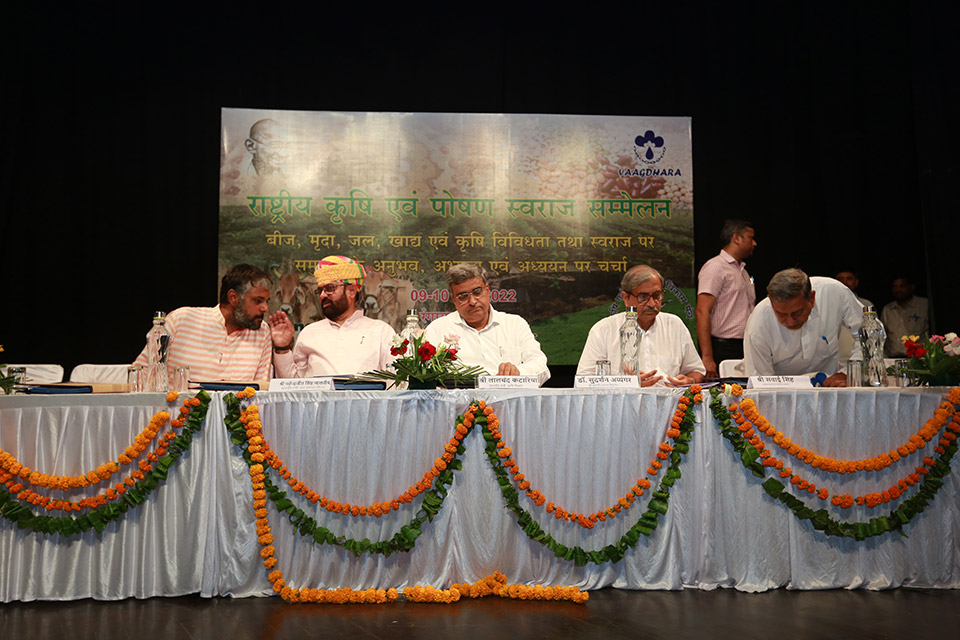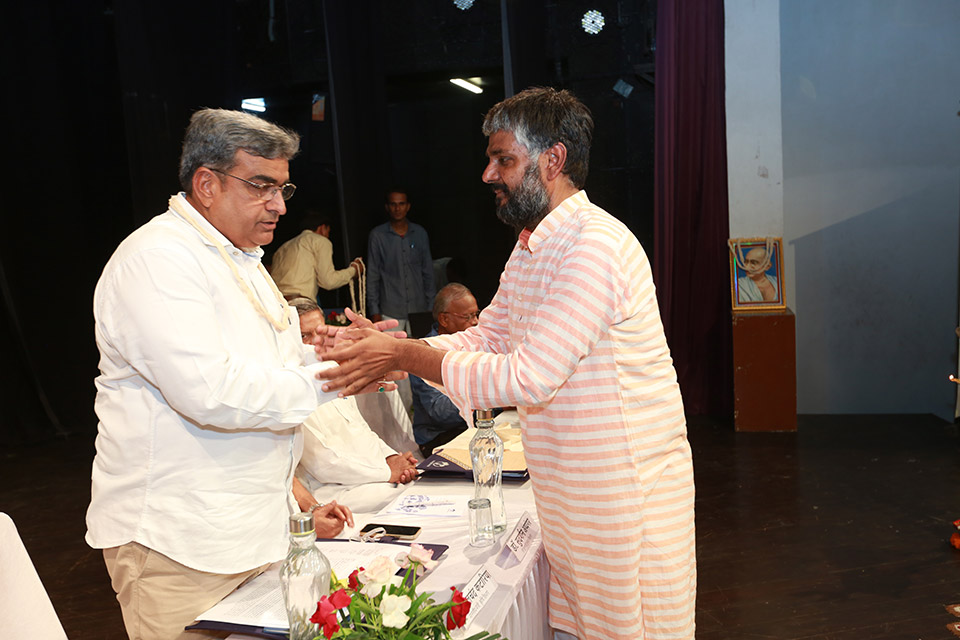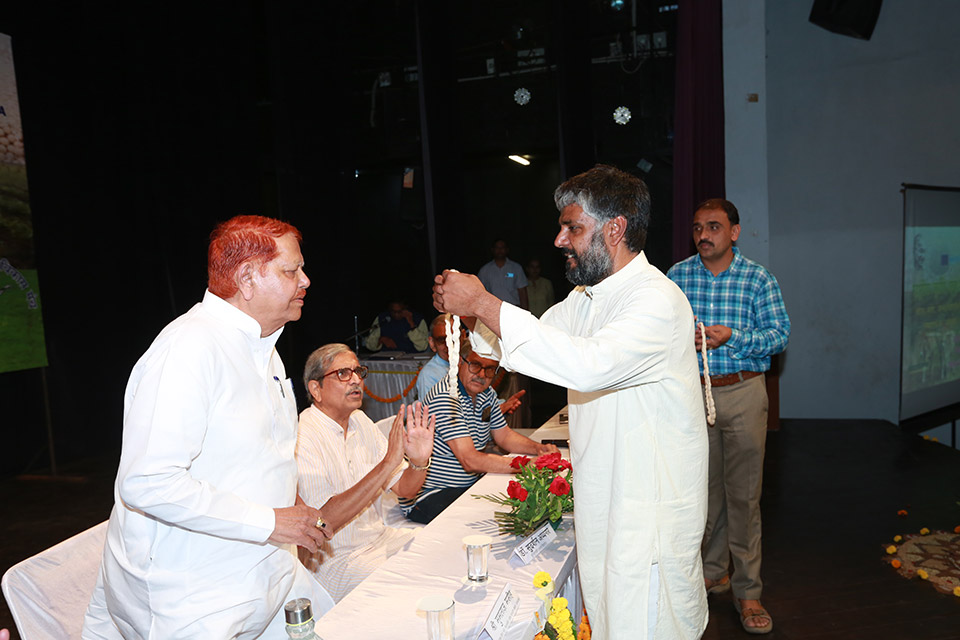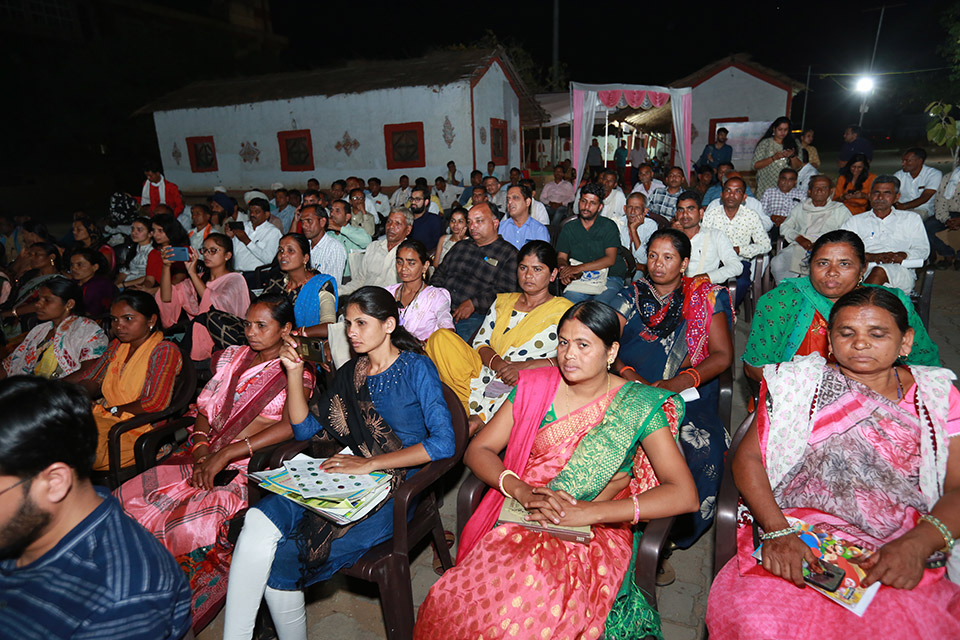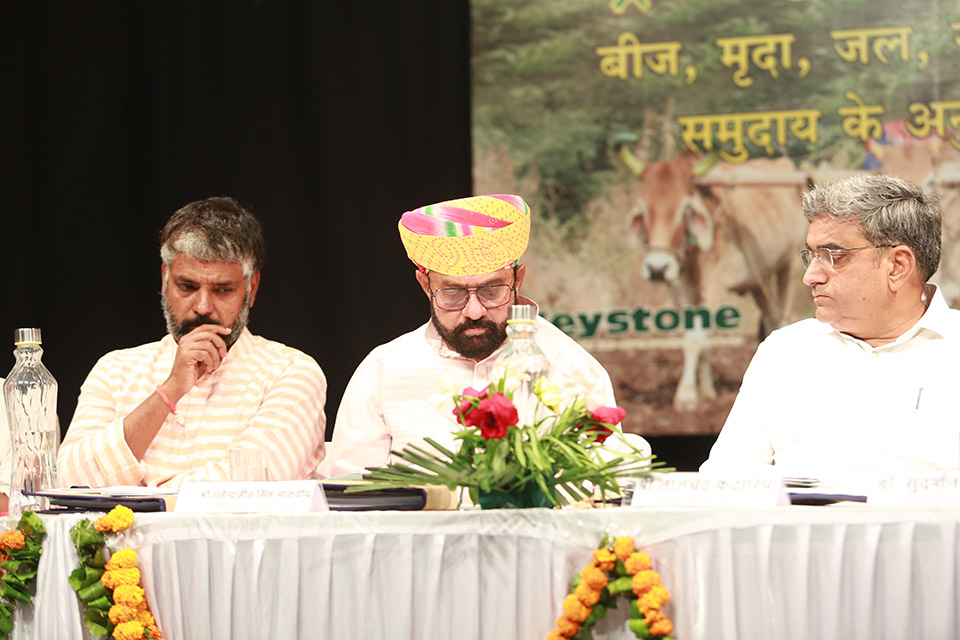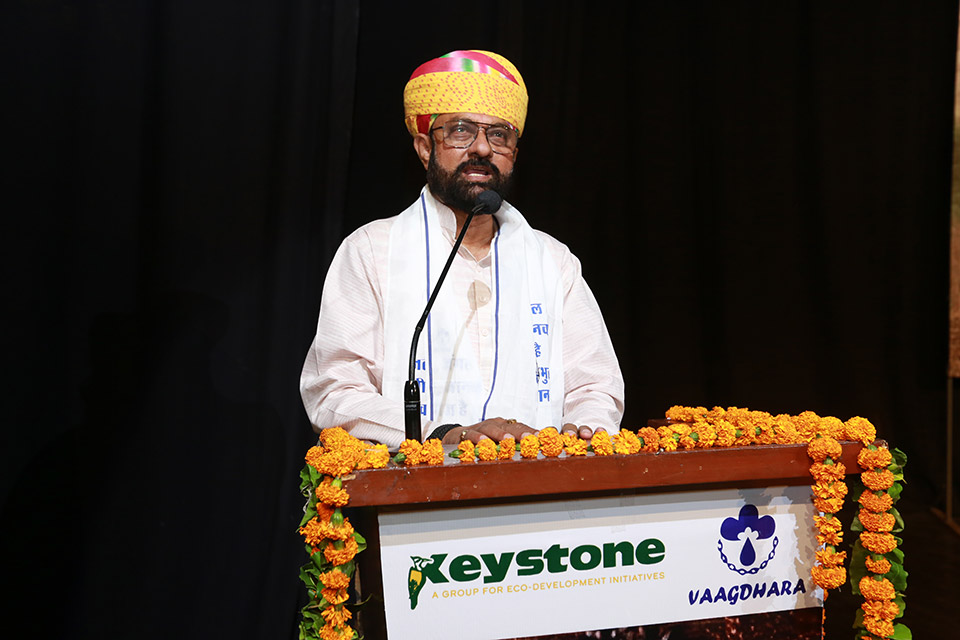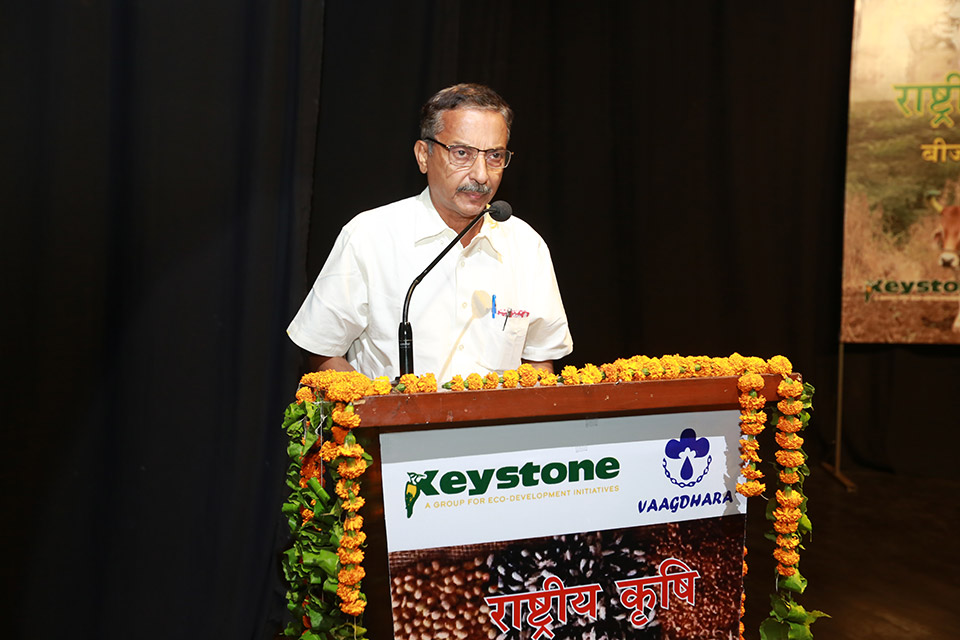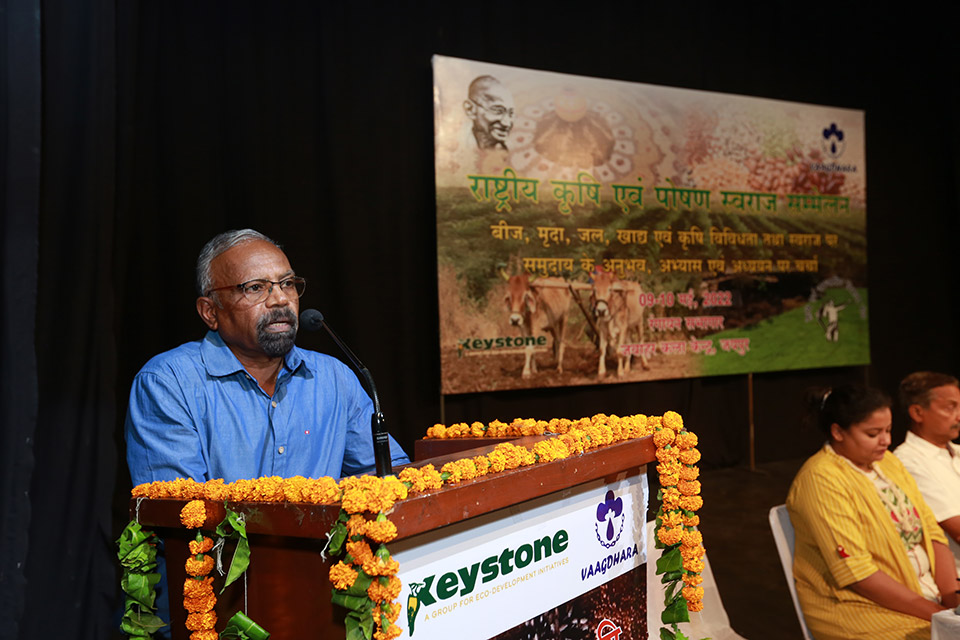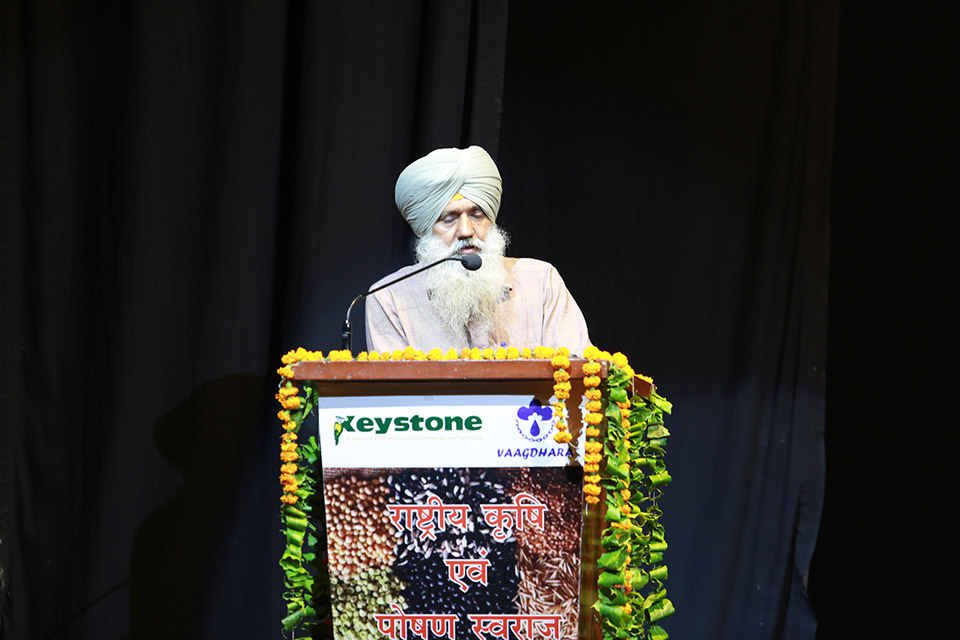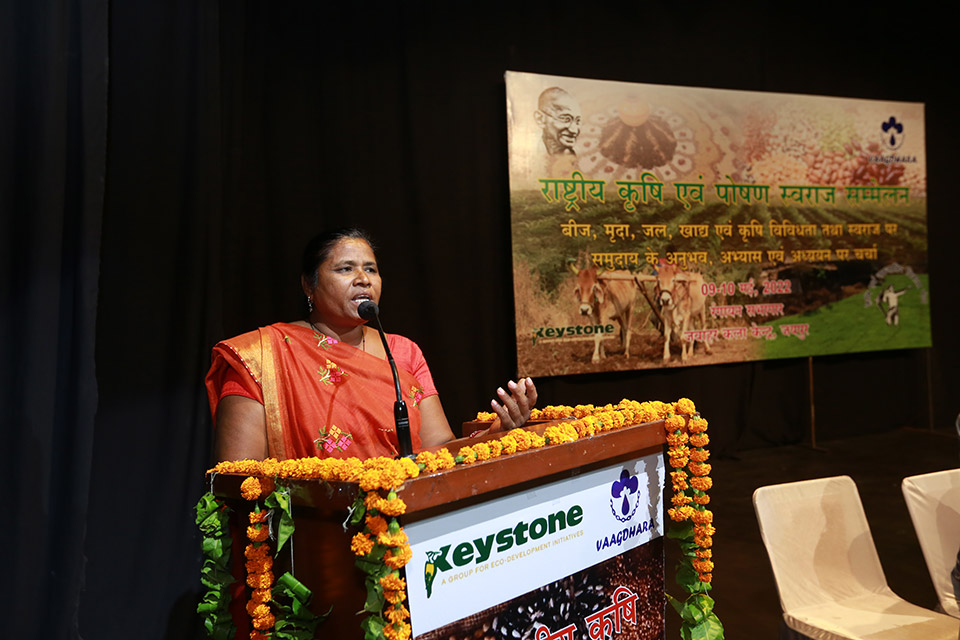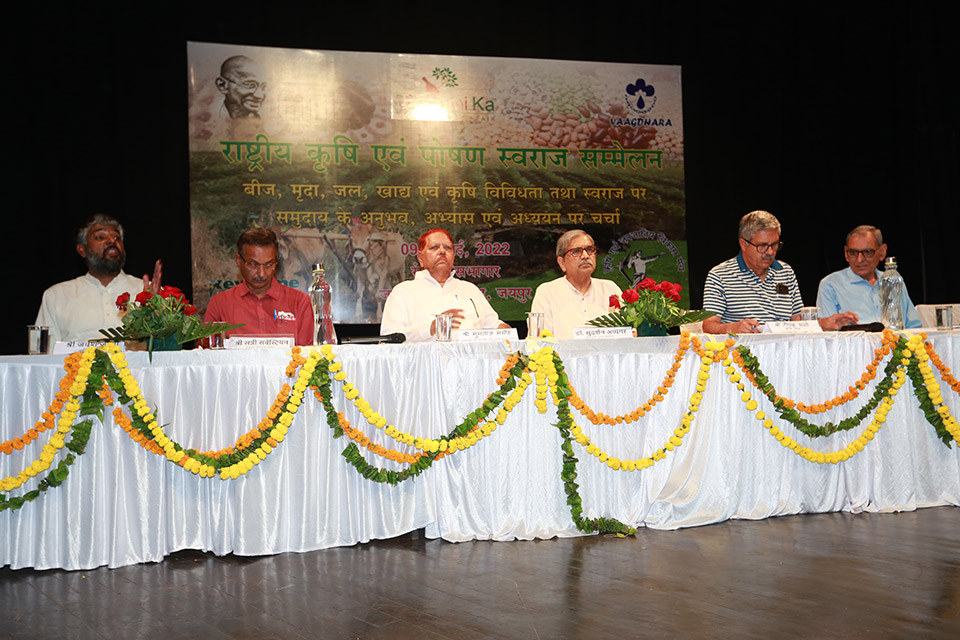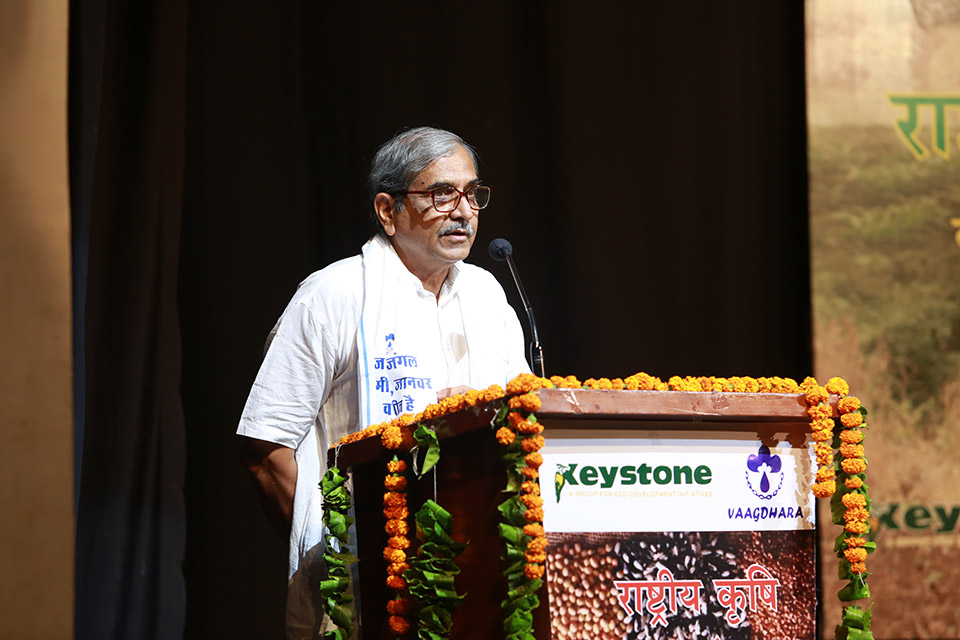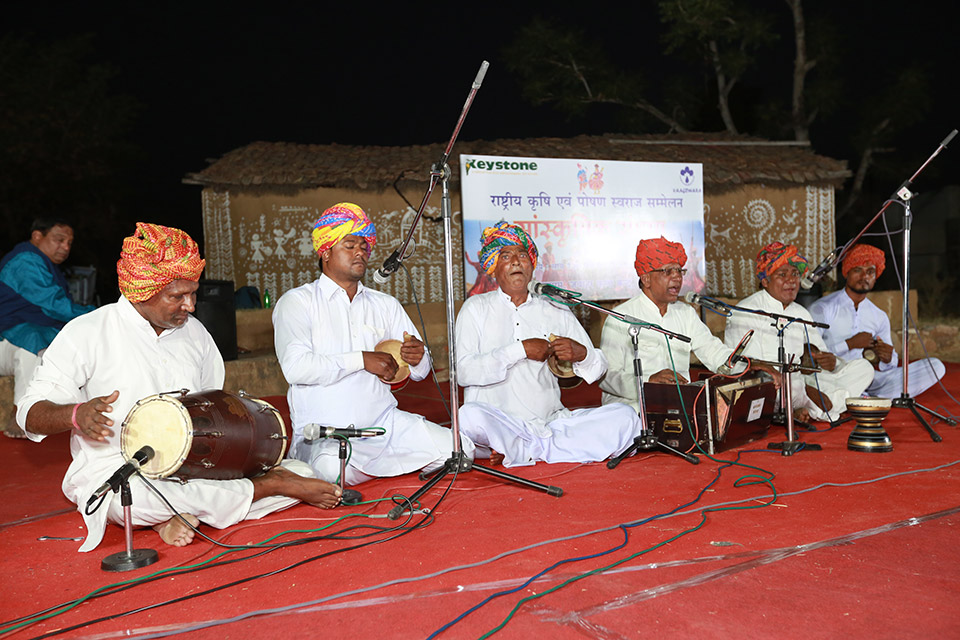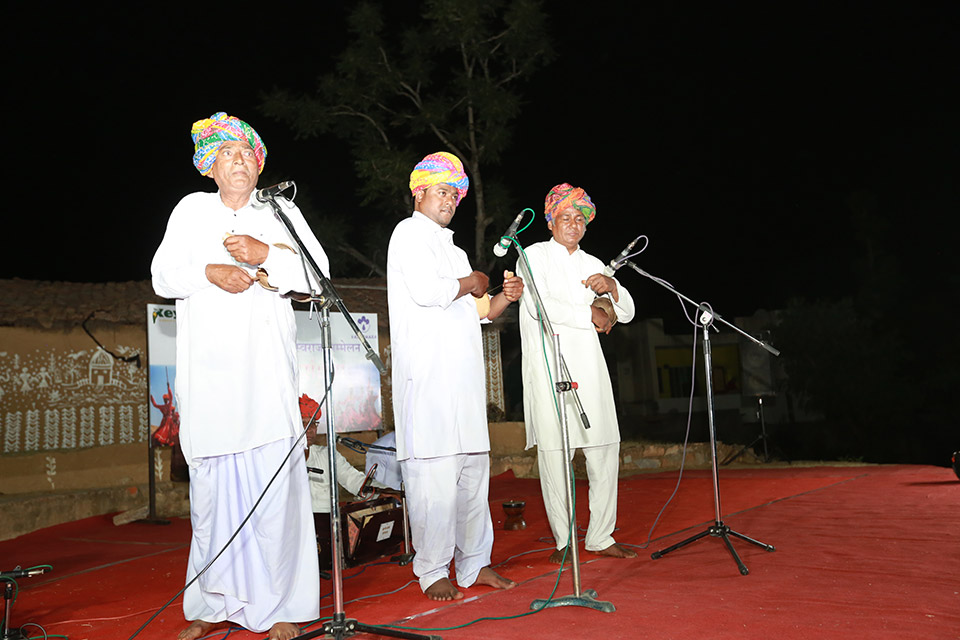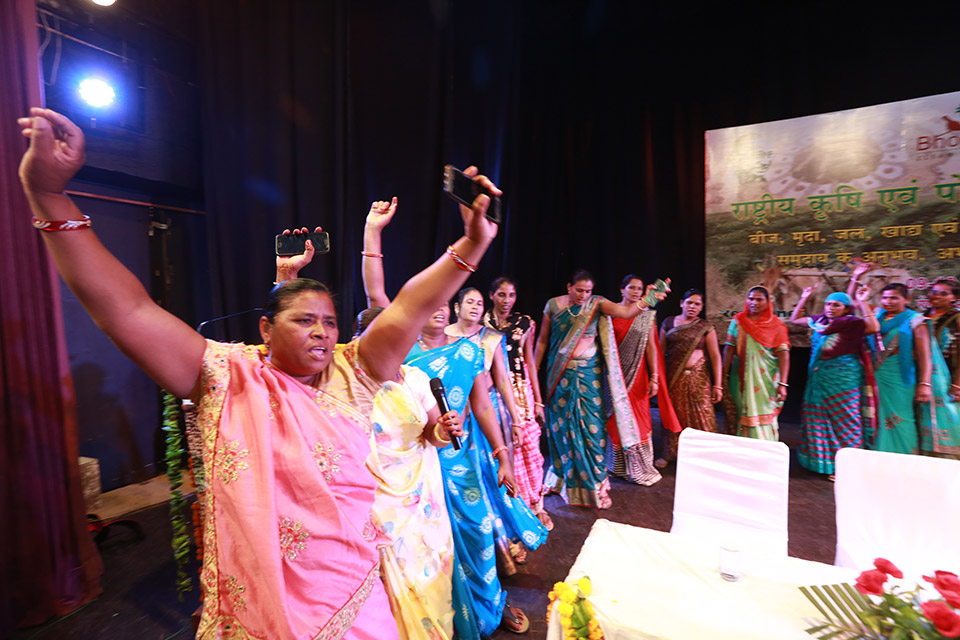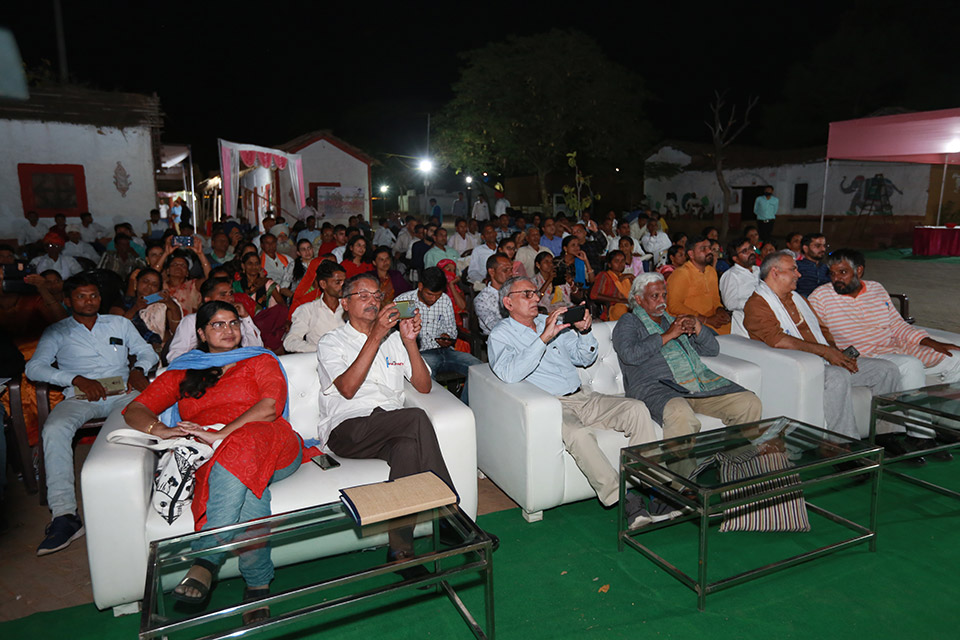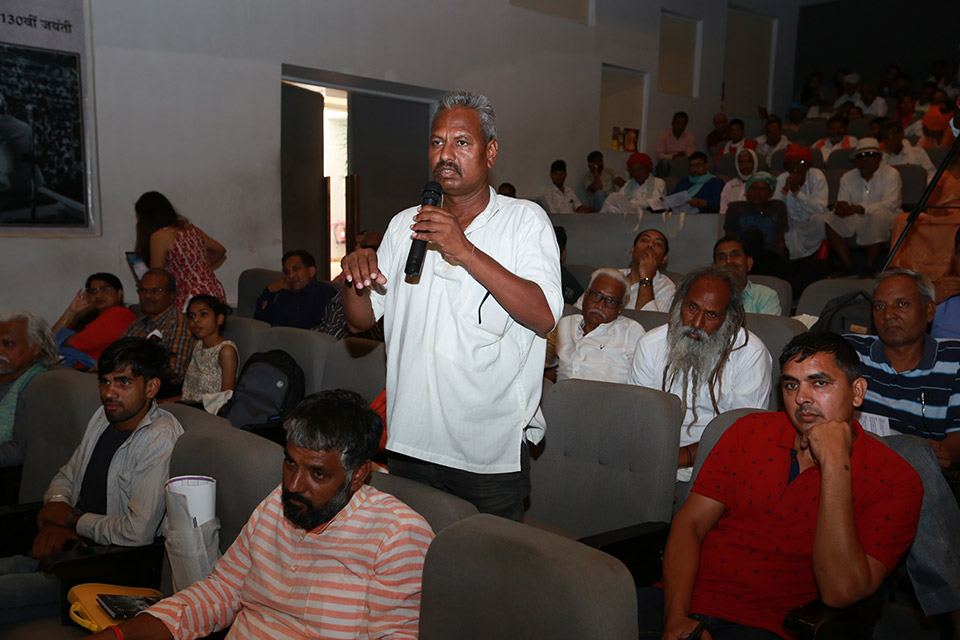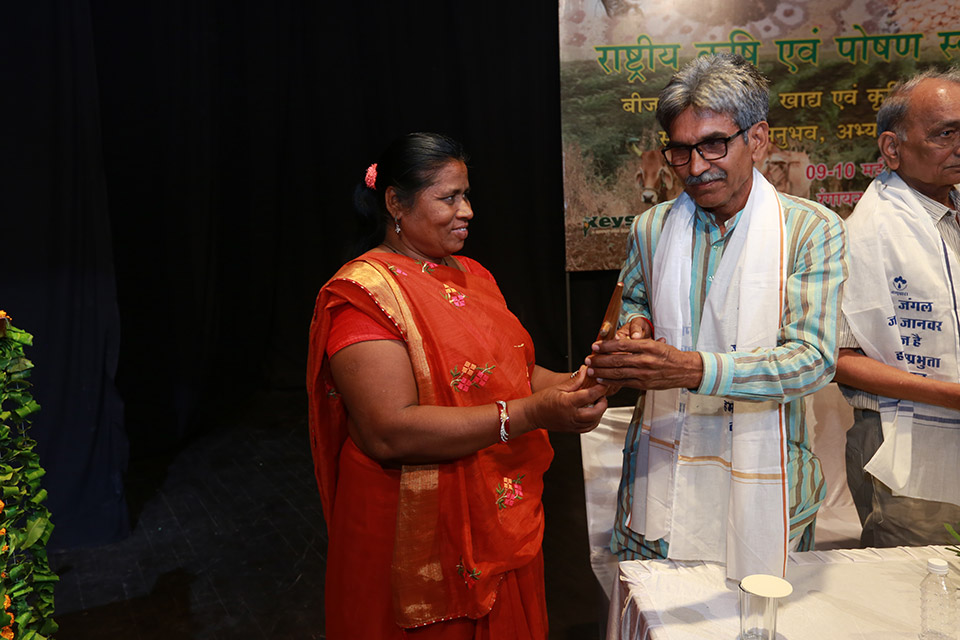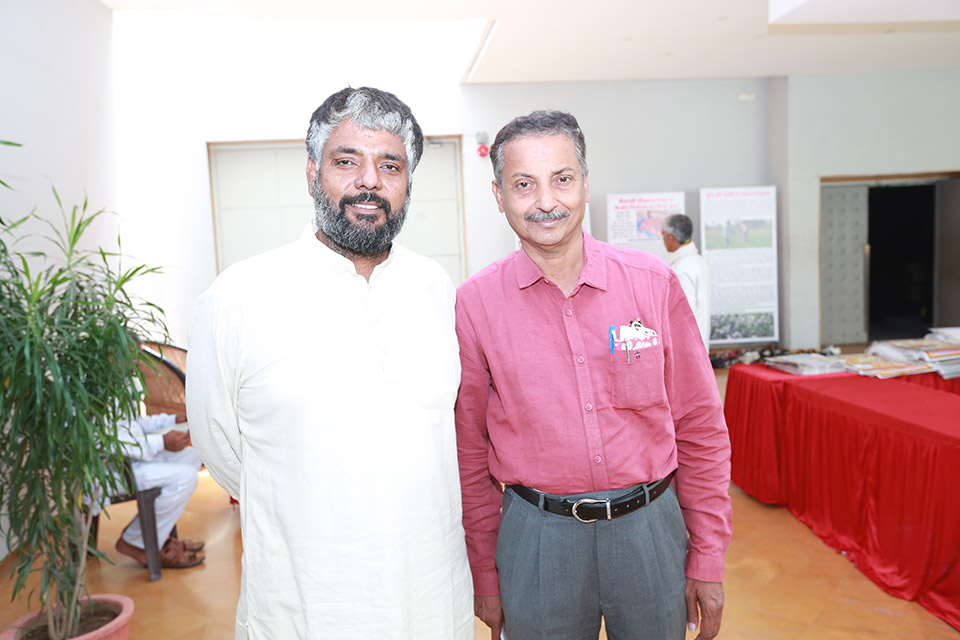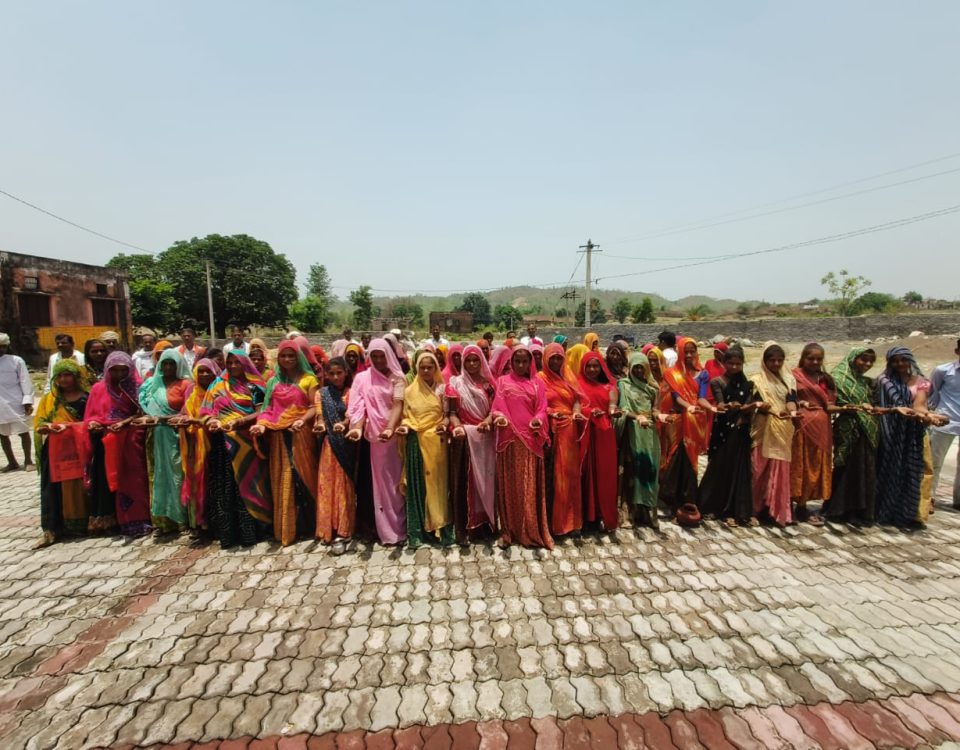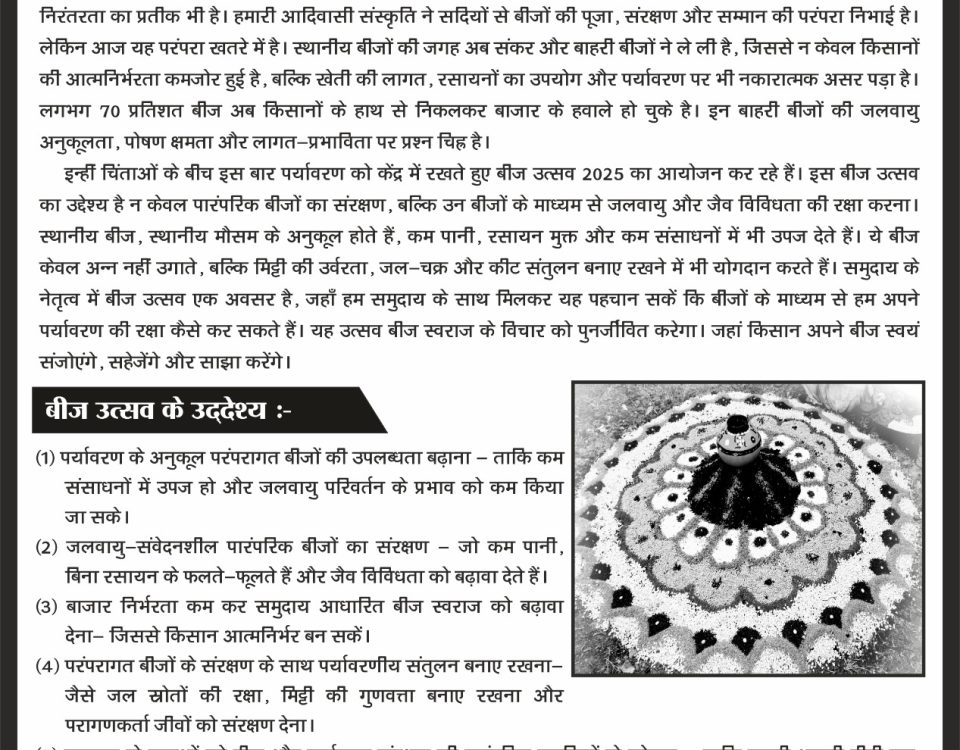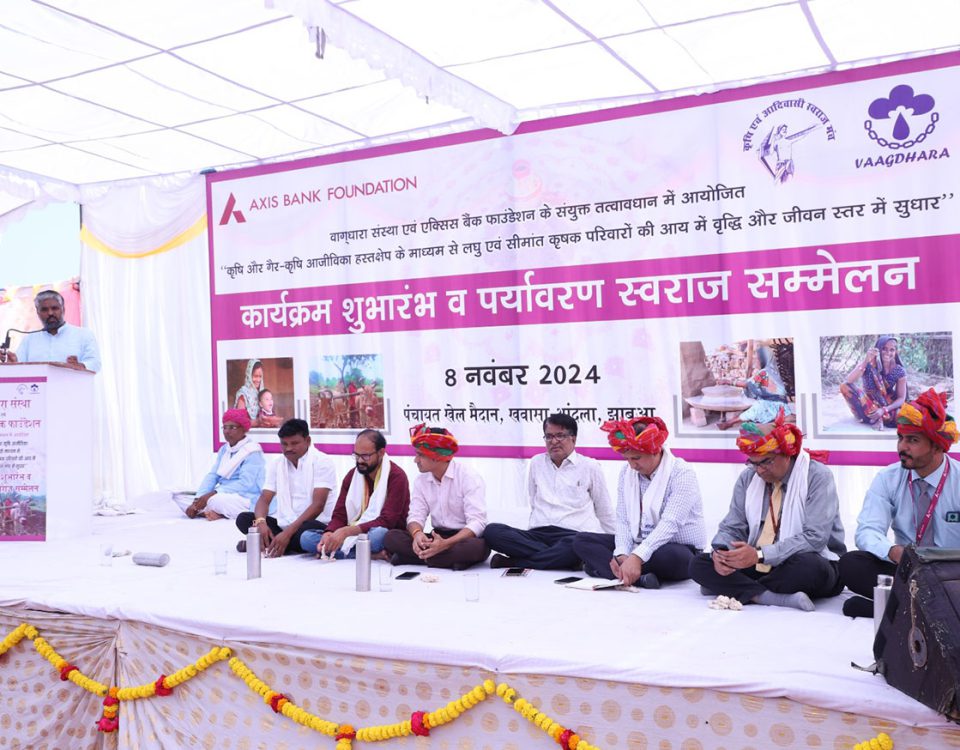Farmers, NGOs & agriculture experts came together to save & promote natural farming

दो दिवसीय राष्ट्रीय पारंपरिक कृषि एवं पोषण स्वराज सम्मेलन
May 10, 2022
Zaid season is important for soil
May 24, 2022A two-day ‘Rastriya Paramparik Krishi and Poshan Swaraj Sammelan’ culminated at Jawahar Kala Kendra, Rangayan Auditorium on May 10. To improve soil health, increase the availability of seeds; promote indigenous local varieties of seed, and promotion of sustainable agriculture practices, Agriculture Minister Lalchand Kataria, Water resource minister Mahendrajeet Singh Malviya, farmers from different districts, women farmers from tribal areas of Rajasthan, agriculture researchers, NGOs, and different experts came together to share, discuss and get a concrete solution to the existing problem of environmental degradation.
Taking note of the existing challenges in the tribal belt of Rajasthan, Agriculture Minister Lalchand Kataria said, the geographical location of areas like Banswara, Dungarpur, and Pratapgarh, is such that doing farming is very difficult, the undue terrene doesn’t allow the soil to hold on, whenever it rains the topsoil washes away and then it takes years for it to form. “I understand that farmers here have to face the challenges thrown on to them by nature and survive with difficulties.” He added that post-corona people have started taking hygiene, cleanliness, and agriculture seriously but not as expected, so the solution to this problem is that we have to make use of the indigenous practices incorporating new technology, and the young generation has to associate with this mission to make it a success.
Supporting Kataria, Water and Resource Minister Mahendra Singh Malviya added that being a tribal himself, hailing from the same area, I understand the challenges I have, my house is still in dense forest and there has been incidence when wild animals have entered I have seen nature very closely. “I have seen such times when one single cloud caused heavy rainfall, leading to blockage of rivers and guts, but now, even though there are numerous clouds hardly any rain, all thanks to the destruction and modernization. We, humans, are only responsible for this; no one else is to be blamed.”
He added that there was a time when one chapatti of small millets was enough to keep the person going for the full day, but now even after having four chappatis one feels hungry. Earlier there were no major health issues, but now there are such diseases that no one had heard of earlier.
Besides, the joint efforts of people associated with agriculture, people who face the ground reality also actively participated and they came up with a two-day exhibition of indigenous seeds, and organic products at the Jaipur Hatt. While interacting with one such farmer who has been growing, conserving, and sharing indigenous seeds said, “These are a few seeds on display, one of them is maua seeds, he elaborated that this is one of the healthy plants, good for pregnant ladies and help in getting over malnutrition.”
On a concluding day (May 10), Mumtaz Masih, Chairman, Center for Development for Voluntary Sector joined the conversation and appreciated the efforts of the voluntary sector acting as a bridge to connect the community with the government. “I am just three months old in this department, but since CM Ashok Gehlot started this department, this tells how important he feels civil societies are. Recently, I did Samvad in Udaipur where I interacted with civil societies to know their problems and tried to understand their challenges so that good governance can be established in the state. Similar kind of Samvad events, I am planning to organize in different districts to connect with all the civil societies across the state.” He also added that very soon a web portal will be launched where civil societies can register themselves and get benefits from government schemes.
The two days event ended on a note of soil health, seed conservation, and management, PGS certification for organic identification, and policy advocacy related to agriculture.
Speakers on this occasion were Dharamveer Katewa, Jaipal Singh Kaushik, Robert Leo, Sawai Singh, Sudarshan Iyengar, Jayesh Joshi, Deepak Sharma, Sunny Sebastian, and Sukhdev Singh Bodak, among others.
Subscribe to our newsletter!


